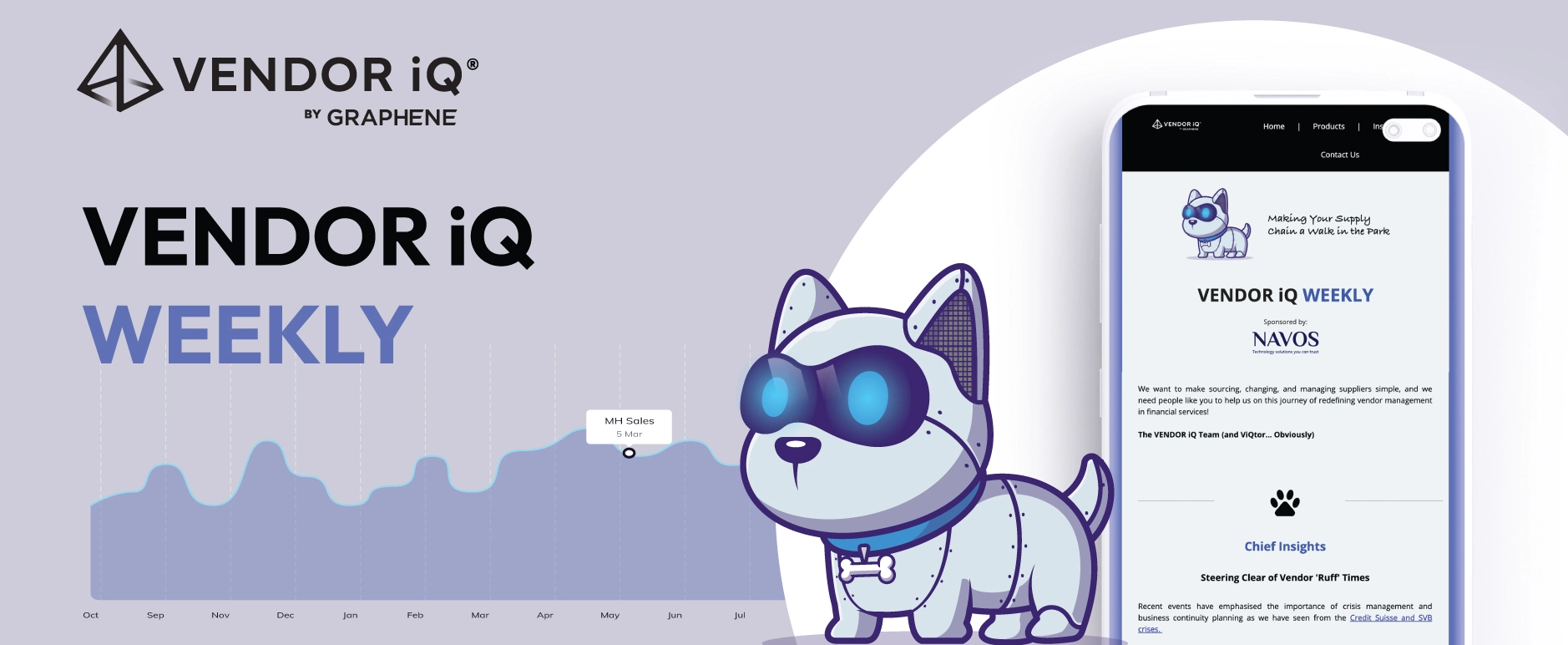Unveiling the Blueprint of Amazon’s Supply Chain Success: Lessons for Financial Services Vendor Management
Amazon’s journey from an online bookstore to a global e-commerce giant is nothing short of remarkable. Their success story is a testament to the power of innovation and strategic planning. But what can financial services learn from Amazon? Surprisingly, quite a bit, especially when it comes to supply chain management.
Innovating the Supply Chain: Lessons for Financial Services
Amazon’s supply chain strategies have revolutionised the way products reach customers. Their mastery of logistics, real-time data utilisation, and customer-centricity has not only driven their growth but also offers valuable insights for managing financial services vendors.
1. Real-Time Data as a Catalyst
Amazon’s supply chain thrives on real-time data analytics. They harness data to predict demand, optimise inventory, and ensure timely deliveries. Similarly, financial services professionals can leverage data analytics to monitor vendors’ performance, track compliance, and predict potential risks.
2. Embracing Technology and Automation
Automation lies at the core of Amazon’s operations. Robots, AI, and advanced technology streamline processes, minimize errors, and enhance efficiency. In the realm of financial services, adopting technology can automate compliance checks, streamline procurement processes, and enable seamless communication with vendors.
3. Customer-Centric Approach
Amazon’s obsession with customer satisfaction is legendary. Their supply chain ensures products reach customers quickly and seamlessly. In the financial sector, focusing on the end-user—whether individual clients or businesses—is crucial. Effective vendor management should align with customer needs, enhancing their experience.
4. Risk Mitigation and Adaptability
Amazon’s contingency planning is evident in its ability to swiftly adapt to changes. Financial services professionals can adopt a similar approach by having robust vendor contingency plans. These plans should anticipate disruptions, outline alternative solutions, and ensure business continuity.
5. Collaborative Partnerships
Amazon’s success isn’t isolated—it involves strong partnerships with suppliers, carriers, and service providers. Similarly, financial services professionals should view vendors as strategic partners. Collaborative relationships can drive innovation, create shared value, and foster mutual growth.
Adapting Amazon’s Strategies for Vendor Management in Financial Services
Despite the apparent differences between financial services and e-commerce, the fundamental tenets of successful vendor management remain the same. By infusing innovation and strategic planning into their vendor management practices, financial services firms can transcend conventional boundaries and achieve operational excellence.
1. Leveraging Data
Harness the power of data analytics to gain actionable insights into vendor performance, discern emerging trends, and preempt potential challenges. By taking a proactive stance, you can drive effective risk management and make informed, forward-thinking decisions.
2. Infusing Technology
Embrace technological integration to automate routine tasks, facilitate real-time compliance monitoring, and enhance communication with vendors. This approach not only frees up valuable time but also ensures accuracy and consistency in vendor interactions, leading to streamlined processes.
3. Aligning Operational Processes
Craft your vendor management strategies to reflect and respond to your business needs and expectations. This customer-centric approach not only strengthens vendor relationships but also fosters trust, building a solid foundation for lasting partnerships.
4. Preparing for the Unexpected
Design comprehensive contingency plans that detail the steps to mitigate potential disruptions. Stay ready to pivot quickly in the face of unforeseen circumstances, ensuring business continuity and resilience in the face of challenges.
5. Building Collaborative Partnerships
Form partnerships with vendors anchored on shared goals and values. Collaborative relationships drive innovation, enhance service delivery, and elevate overall performance, paving the way for mutual growth and success.
Conclusion
Amazon’s unparalleled success in supply chain management serves as an instructive model for innovation and strategic planning. While financial services may operate in a different sphere, the core principles of data-driven insights, technological integration, customer-centricity, robust contingency planning, and collaborative partnerships hold true and can significantly elevate vendor management.
By embracing and adapting these strategies, financial professionals can optimize vendor management, reduce risks, and enhance vendor relationships, ultimately propelling their organizations toward growth and success in a rapidly evolving financial landscape. The Amazon-inspired approach to vendor management offers a blueprint for transformation and a pathway to operational excellence in financial services.





